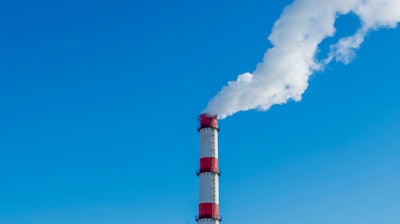
SAN JUAN, Puerto Rico (AP) — A huge oil refinery in the U.S. Virgin Islands that contaminated the environment in a series of events that sickened dozens of people and forced schools to close announced Monday that it would remain shuttered indefinitely.
Limetree Bay Energy said it would lay off more than 270 workers by September because it faced “extreme financial constraints” after the U.S. Environmental Protection Agency suspended its petroleum refining and processing operations last month.
“This was an extremely difficult decision for us,” CEO Jeff Rinker said in a statement. “Unfortunately, this is our only option.”
The EPA paused the company’s operations last month as part of a 60-day emergency order after noting that Limetree had significant air pollutant and oil releases since February. The incidents, which the agency called “totally unacceptable,” include exceeding the emissions limit of sulfur dioxide, which can harm a person’s respiratory system.
“Each had an immediate and significant health impact on people and their property,” the EPA said.
The announcement of the indefinite closure comes a month after a group of people filed a class action suit accusing Limetree of routinely emitting dangerous airborne chemicals. Judith Enck, a former EPA regional administrator, said in a phone interview that the contamination led to the hospitalization of dozens of people, the temporary closure of schools and even forced a COVID-19 vaccine site to shut down for a day.
“Limetree caused tremendous damage on St. Croix,” she said, adding that while people can breathe easier for now, much work remains. “There is a legacy of toxic contamination at the property that needs to be cleaned up.”
Enck added that it would take decades to do so: “This is probably going to be a long, drawn-out fight over hundreds of millions of dollars. This cleanup is not going to be cheap.”
Hours after Limetree made its announcement, David Bond, a professor at Bennington College in Vermont, stood outside a grocery store in the U.S. territory as he continued to survey people about how the refinery has affected their health.
Hundreds of residents have responded in recent days, recalling how they have found droplets of oil on their car windshields or an oily film in their cisterns, which they depend on for drinking water. Many also reported breathing problems, he said in a phone interview.
“There's been a huge impact here,” Bond said, adding that it should be the government's and company's duty to collect that information. “We should not be doing this survey. This should not be the responsibility of citizens.”
The oil refinery is based on the island of St. Croix, home to more than 50,000 people. Its previous owner was Hovensa LLC, a joint venture of New York-based Hess Corp. and Petróleos de Venezuela SA. At the time, the refinery was among the 10 largest in the world and also struggled with polluting events, paying a $5.4 million penalty one year for violating the Clean Air Act.
In 2012, Hovensa LLC announced it was closing the refinery in a hit to the tiny island given that some 2,000 people worked there. It was the U.S. territory’s largest private employer and generated some $60 million a year in revenue for the government.
The complex kept operating solely as an oil storage terminal for nearly a decade until Limetree restarted the refinery in February of this year following permission from the Trump administration, announcing it was capable of processing some 200,000 barrels a day. Limetree, which is now run by EIG Global Energy Partners, had bought the terminal and refinery in 2016 for $190 million.






















